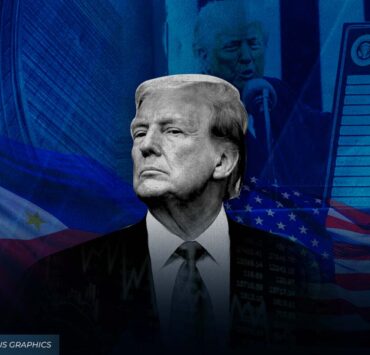Taiwan’s military complacency risks US support

United States President Donald Trump’s bold claim that B-2 stealth bombers had “completely and totally obliterated” Iran’s nuclear sites briefly sparked discussion in Taiwan: could a similar US military response be expected in the event of a Chinese blockade or invasion? While the public remained calm, many saw Trump’s decisiveness as encouraging. Yet, this perception of reassurance risks breeding complacency about the nature and limits of Washington’s commitments.
Some observers drew comparisons to the Israel–Iran conflict, but the analogy is flawed. Taiwan faces a very different cultural and geopolitical landscape.
Unlike Israelis, who broadly view military service as a civic duty, many Taiwanese remain ambivalent or resistant to conscription. Taiwan’s conscription system is plagued by low morale and limited public esteem, shaped by Confucian preferences for academic achievement over martial service. Draft evasion scandals are frequent, and both contract recruitment and military academy enrollment struggle to meet targets.
In stark contrast, military service in Israel is seen as a rite of passage that bolsters career prospects, especially for elite unit veterans who often transition into tech and defense sectors. Employers value the discipline, skills, and networks acquired during service.
Taiwan’s cultural reluctance to embrace military preparedness is a strategic liability. Former US Pacific command chief admiral Dennis Blair stated at a June 2025 war-gaming event that US intervention is “much more likely” if Taiwan demonstrates a willingness to defend itself. Similarly, defense strategist Elbridge Colby has emphasized that American support depends heavily on Taiwan’s readiness and resolve. The message is clear: US support is conditional.
Iran, after decades of effort, still struggles to develop nuclear weapons. China already has them, along with the economic clout to deter American involvement. A strike on Iranian facilities can be framed as a limited operation. Taiwan, however, presents a far riskier and more complex challenge. Escalation in the Taiwan Strait would carry immense military, economic, and global consequences.
This risk calculus reflects a broader pattern in US foreign policy—one shaped by the lessons of Vietnam and Afghanistan. The US prefers engagements where risks are manageable and exit strategies are clear. In contrast, entanglements that spiral out of control—such as Vietnam (1965–1973)—prompt withdrawal.
The Vietnam War offers a cautionary parallel. US commitment to South Vietnam eroded as costs mounted: nearly 60,000 American lives lost, intense domestic opposition, and minimal strategic gain. Despite years of support and military aid, the US eventually chose disengagement through the 1973 Paris Peace Accords. Confidence in the South Vietnamese Army persisted in public statements—even as intelligence failed to predict the rapid collapse. In March 1973, President Nixon assured the public that the Army of the Republic of Vietnam (ARVN) forces could defend the country alone. Yet just two years later, Saigon fell.
This pattern—overstated confidence followed by sudden collapse— was repeated in Afghanistan. In early 2021, US intelligence acknowledged the Taliban’s growing power but expected Kabul to hold out for at least six months. It fell within weeks.
Complacency in Taiwan is further fed by misplaced optimism: assumptions that a Chinese invasion remains unlikely, or that Beijing lacks the capability for an amphibious assault. This view is increasingly questioned. US Secretary of Defense Pete Hegseth has warned that China may act sooner than expected. And history shows that US intelligence has a mixed track record predicting rapid military collapses—failing to foresee the Korean War’s outbreak in 1950, the fall of Saigon in 1975, and the swiftness of the Taliban’s takeover in 2021.
Even in April 1975, as North Vietnamese forces closed in, a US embassy cable reported that earlier assessments did not see defeat as inevitable. The late general William Westmoreland praised the ARVN’s efforts, while ambassador Graham Martin resisted evacuation, hoping additional aid would stabilize the situation. The collapse still came—sudden and complete.
Taiwan must not assume that US forces will automatically intervene. Demonstrating a strong domestic defense effort is not only key to deterrence but also critical to securing American and allied support. Taiwan’s semiconductor industry and advanced military platforms matter—but they are not substitutes for a society willing to fight.
Visible public commitment to national defense, improved readiness, and reform of Taiwan’s conscription system are essential. The world is more likely to stand with Taiwan if Taiwan first stands up for itself.
—————–
Regan Chong is a Hong Konger advocating for Hong Kong’s independence from China and a contact person for the Hong Konger Front.

















